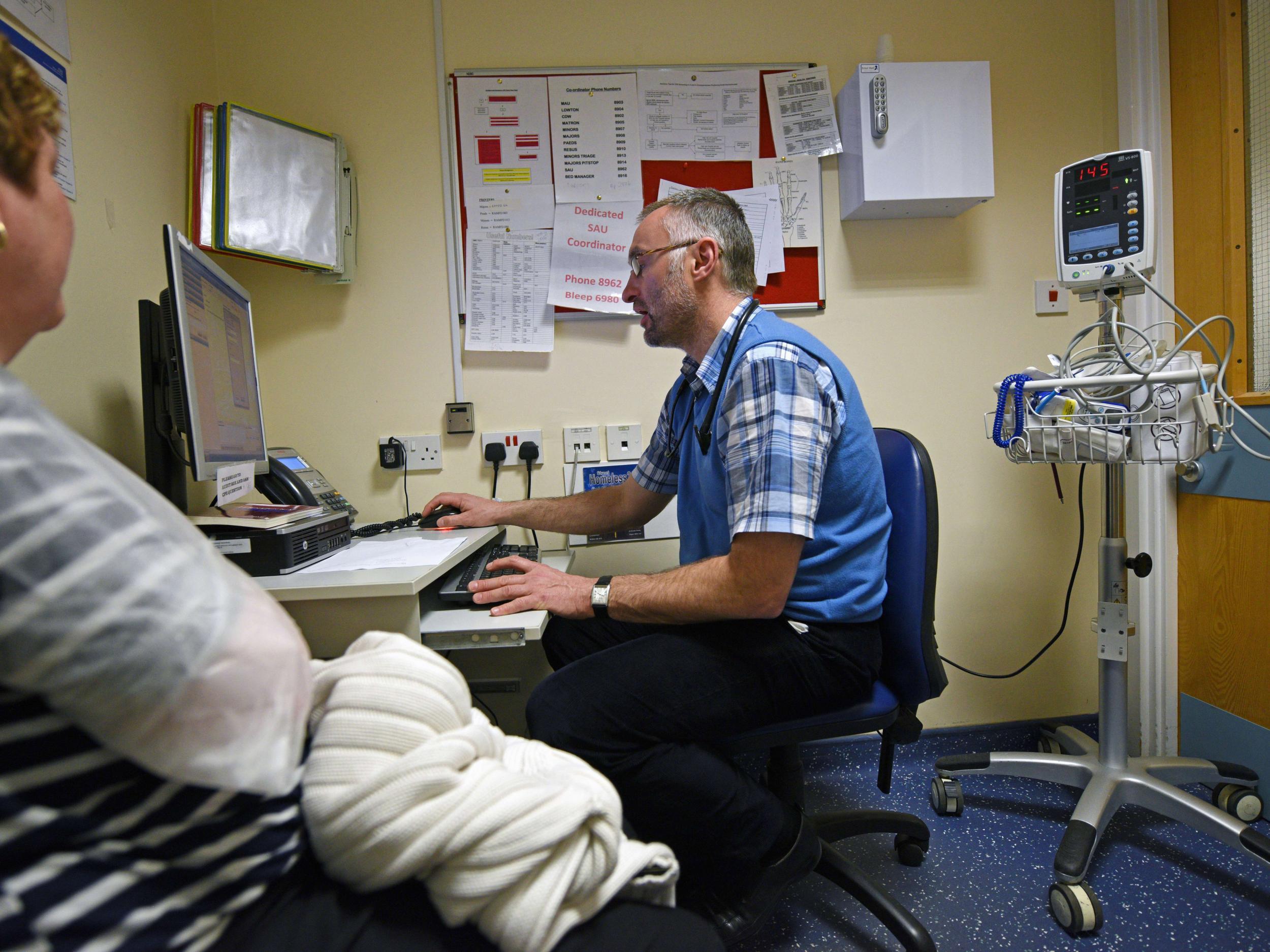NHS will recruit 2,000 foreign GPs to meet staff targets, says health chief
Targeting staff abroad ‘a clear admission of failure from Government,’ says chairman of the BMA’s GP committee

The National Health Service will recruit around 2,000 more GPs from abroad to meet its staffing targets, said Simon Stevens, the head of NHS England.
The figure is in addition to the 500 already planned, with Mr Stevens saying an “industrial scale” foreign recruitment programme was needed to alleviate staffing pressures.
The Government has set a target of recruiting 5,000 more GPs by 2020, but it is widely expected to miss that goal.
The acting chairman of the BMA’s General Practitioner’s Committee (GPC), Dr Richard Vautrey, said Mr Stevens’ announcement was a “clear admission of failure” from the Government to properly staff the NHS.
In an interview with the Health Service Journal (HSJ), Mr Stevens said efforts were being stepped up to encourage GPs to come to the UK.
He said: “Although there are some good signs of progress on increases in the GP training scheme, nevertheless there are real pressures around retirements.
“And so the conclusion we’ve come to is that in order to increase the likelihood of being able to have 5,000 more doctors in general practice, we are going to need ... a significantly expanded industrial scale international recruitment programme. We intend to launch that in the autumn.
“Rather than the current 500 or so GPs that are being targeted for international recruitment ... it probably needs to be four times more than that, from international sources – [from the] rest of the EU and possibly New Zealand and Australia.”
Asked for his view on whether the public sector pay cap should be lifted, he said: “I think it’s a mixed picture. There’s a sense of fairness across the NHS that it would be a good thing to do. But of course ultimately these are judgements that government has to make.”
He said if the cap was lifted, extra funding for NHS staff would have to be put in place.
Dr Vautrey said: “Overseas doctors have for decades provided a valuable contribution to the NHS, especially in general practice where they have a strong track record of providing first-class patient care.
“However, this announcement is yet another clear admission of failure from the Government, which is effectively conceding it cannot meet its own target of recruiting 5,000 extra GPs without an emergency draft of doctors from abroad.
“General practice is currently under unsustainable pressure from rising patient demand, falling resources and widespread staff shortages.
“We need a long-term solution that addresses these workload pressures which lead to low morale amongst existing GPs and create a climate which is putting off medical graduates from choosing general practice as a career.
“Applying a sticking plaster by recruiting doctors from abroad can only offer a limited short-term fix, especially when there is uncertainty over freedom of movement following the UK’s exit from the EU.”
Professor Helen Stokes-Lampard, chairwoman of the Royal College of GPs, said: “Workload in general practice is escalating. It has risen 16 per cent over the last seven years, yet investment in our service has declined and we are desperately short of GPs and nurses.
“It is imperative that we do everything possible to address this, including recruiting more GPs, retaining existing ones, and making it easier for trained GPs to return to practice after a career break.”
She said the college welcomed any GP from the EU or further afield “as long as they meet the rigorous standards set by the College and General Medical Council to ensure safe clinical practice”.
She added: “We also need the position of EU GPs already working in UK general practice to be safeguarded beyond doubt as part of Brexit negotiations, and we are calling for GPs to be added to the Migration Advisory Committee’s shortage occupation list, to make it easier for family doctors from overseas who want to live here and work in UK general practice to do so.”
She said the promised extra £2.4bn extra a year for general practice and 5,000 more full-time equivalent GPs by 2020 must be delivered as a matter of urgency.
Press Association
Join our commenting forum
Join thought-provoking conversations, follow other Independent readers and see their replies
Comments
Bookmark popover
Removed from bookmarks